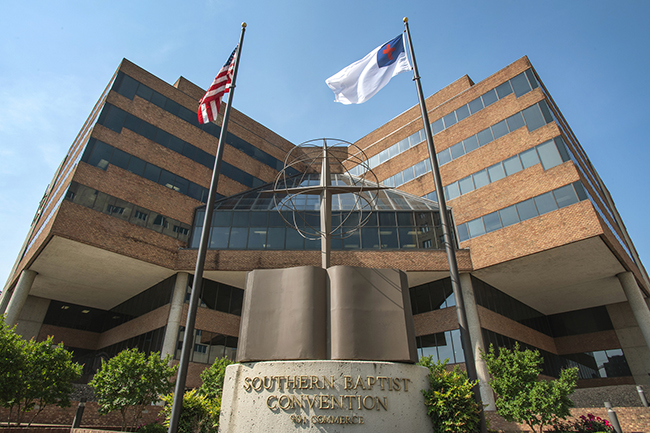
By Staff
A majority of pastors with denominational affiliation believe it is vital to be part of a denomination, but a majority also believe that the importance of identifying with a denomination will diminish over the next 10 years.
That is the finding of a survey by Lifeway Research of more than 900 American Protestant pastors. The survey, conducted in March 2010, excluded pastors of non-denominational churches.
In response to the statement, “Personally, I consider it vital for me to be part of a denomination,” three-quarters of pastors (76 percent) agree. That includes 57 percent who strongly agree and 19 percent who somewhat agree. Ten percent somewhat disagree and 14 percent strongly disagree while 1 percent don’t know.
Similarly, three-quarters (76 percent) of pastors agree with the statement, “Our congregation considers it vital for our congregation to be part of a denomination.” Fifty percent strongly agree, 26 percent somewhat agree, 9 percent somewhat disagree and 14 percent strongly disagree. Two percent don’t know.
Despite the convictions of identity, however, nearly two-thirds of pastors (62 percent) believe the importance of identifying with a denomination will decline over the next decade.
Survey participants were asked, “I believe that the importance of being identified with a denomination will diminish over the next 10 years.” Twenty-eight percent of pastors strongly agree and 34 percent somewhat agree. Fifteen percent somewhat disagree, and 18 percent strongly disagree. Five percent don’t know.
“Many talk about the decline of denominations today, prompting us to ask pastors of churches that belong to Protestant denominations if they consider their affiliation vital,” said Ed Stetzer, vice president of research and ministry development at Lifeway Christian Resources. “Many will be surprised at how strong their response was in favor of denominational connection, but also intrigued that their outlook on the future is much less optimistic.”
Evangelical, educational differences
The survey results reveal that pastors who consider themselves mainline are more likely than evangelicals to agree (strongly or somewhat) that their personal membership in a denomination is important. While 85 percent of mainline pastors agree that it is vital to be part of a denomination, only 74 percent of evangelicals agree.
Education and age also affect pastors’ opinions of denominations. Those with at least a master’s degree (62 percent) are more likely to strongly agree that their personal denominational identification is vital than pastors with a bachelor’s degree (41 percent) or some college (48 percent).
Pastors ages 65 and older are more likely to strongly agree (71 percent) that their personal denominational identification is vital than those ages 55-64 (58 percent), 45-54 (55 percent) and 18-44 (48 percent).
The same groups — mainline versus evangelical, education and age — have differences in responses from pastors regarding whether their congregations consider identifying with a denomination to be important:
- Those who consider themselves mainline (85 percent) are more likely than evangelicals (77 percent) to agree (strongly or somewhat) that their congregation considers it vital to be part of a denomination.
- Pastors with at least a master’s degree (53 percent) and those with some college (45 percent) are more likely to strongly agree that their congregation considers denominational membership vital than pastors with a bachelor’s degree (35 percent).
- Although age does not affect total agreement, pastors 65 and older (62 percent) are more likely to strongly agree that their church considers denominational affiliation vital than pastors ages 55-64 (48 percent), 45-54 (49 percent) or 18-44 (45 percent).
Pastors of larger churches are most likely to agree (strongly or somewhat) that the importance of denominations will diminish over the next decade. Seventy-two percent of those with churches averaging 250 or more in worship agree, compared with 62 percent of those averaging 50-99 and 53 percent of those averaging fewer than 50.
Pastors with less than a bachelor’s degree (28 percent) are more likely to strongly disagree than pastors with at least a master’s degree (14 percent) that the importance of identifying with a denomination will diminish over the next decade.
Although the majority of all age groups agree that identifying with a denomination will decrease in importance, pastors 65 and older are the most likely age bracket to strongly disagree. While 27 percent 65 and older strongly disagree, only 16 percent ages 55-64, 15 percent 45-54 and 16 percent 18-44 strongly disagree.
“Ironically, the future value of most denominations depends at least in part on the very pastors who predict their decline in influence,” said Stetzer. “The group most likely to predict denominational decline is pastors of larger churches, which is probably not surprising to most observers. Yet, it does point to the future challenge for denominational leaders.”
The phone survey sampled randomly selected Protestant churches. Each interview was conducted with the senior pastor, minister or priest of the church called and responses were weighted to reflect the geographic distribution of Protestant churches. The completed sample of 932 phone interviews provides a 95 percent confidence that the sampling error does not exceed ±3.2 percent. Margins of error are higher in subgroups. Pastors of churches that are nondenominational were excluded from this study.







